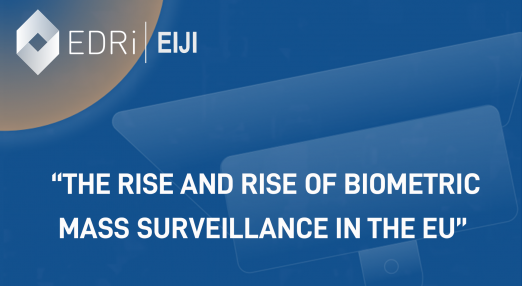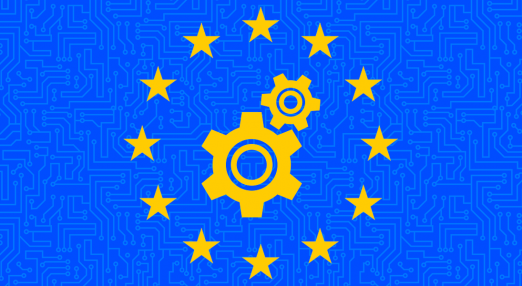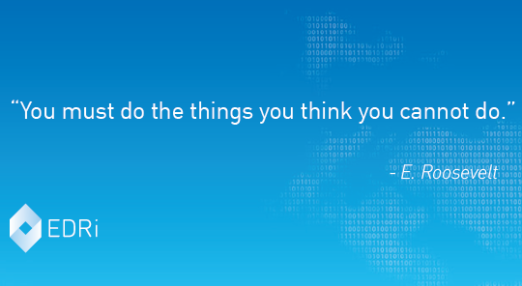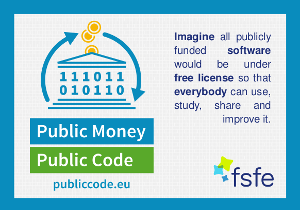Closing the Loopholes in EU’s Net Neutrality Framework
The European net neutrality rules are being reformed to fix one of the biggest loopholes in the EU‘s framework: Zero-Rating. EDRi has been vocal about the dangers of Zero-Rating, a practice by which telecoms companies discriminate between online services by making some data traffic more expensive than other such traffic. Prompted by three judgments of the Court of Justice of the European Union, the Board of European Regulators for Electronic Communications (BEREC) has acknowledged that their previous 2016 Guidelines on how to enforce the Net Neutrality Regulation have to be overhauled. The direction of the reform is looking to confirm the previous submissions of EDRi over the past six years and today we add another submission to BEREC with the hope of fixing the last loophole in Europe’s net neutrality framework.
Filter resources
-

Closing the Loopholes in EU’s Net Neutrality Framework
The European net neutrality rules are being reformed to fix one of the biggest loopholes in the EU‘s framework: Zero-Rating. EDRi has been vocal about the dangers of Zero-Rating, a practice by which telecoms companies discriminate between online services by making some data traffic more expensive than other such traffic. Prompted by three judgments of the Court of Justice of the European Union, the Board of European Regulators for Electronic Communications (BEREC) has acknowledged that their previous 2016 Guidelines on how to enforce the Net Neutrality Regulation have to be overhauled. The direction of the reform is looking to confirm the previous submissions of EDRi over the past six years and today we add another submission to BEREC with the hope of fixing the last loophole in Europe’s net neutrality framework.
Read more
-

Digital Dignity Document Pool
Digital technologies can have a profound effect on our societies, but sufficient attention is rarely given to how certain applications differentiate between, target and experiment on communities at the margins. This document pool gathers resources for those that are interested in learning about and contesting the harms to dignity and equality that arise from uses of technology and data.
Read more
-

Biometric mass surveillance flourishes in Germany and the Netherlands
In a new research report, EDRi reveals the shocking extent of biometric mass surveillance practices in Germany, the Netherlands and Poland which are taking over our public spaces like train stations, streets, and shops. The EU and its Member States must act now to set clear legal limits to these practices which create a state of permanent monitoring, profiling and tracking of people.
Read more
-

The Digital Markets Act must do more to protect end users’ rights
As the European Commission sets out plans for a Digital Markets Act, EDRi calls for the protection of users’ human rights to be at the centre of plans to regulate the role platform gatekeepers play in the future of Europe’s digital environment.
Read more
-

2021: Important consultations for your Digital Rights!
Public consultations are an opportunity to influence future legislation at an early stage, in the European Union and beyond. They are your opportunity to help shaping a brighter future for digital rights, such as your right to a private life, data protection, or your freedom of opinion and expression.
Read more
-

‘A for effort’: European Commission DSA/DMA proposal falls short of the systemic change needed to rein in Big Tech power
The Commission’s proposal is an important step but falls short of putting forward an ambitious plan to break free from the centralised platform economy that defines people’s online experiences today.
Read more
-

German Corona tracing app available without Google services
A handful of Free Software developers today achieved what official bodies have been missing for months: They have made available the German Corona Warn App for tracing Covid-19 risk contacts in a version that is completely free of dependencies on Google and available in F-Droid, the Free Software app store.
Read more
-

EU alphabet soup of digital acts: DSA, DMA and DGA
Members of the European Commission appointed in 2019 agreed to put digital policies as one of the cornerstones of EU legislation between 2019-2023. These include the Digital Services Act (DSA), the Digital Markets Act (DMA) and the Data Governance Act (DGA). So, what are the differences between these acts?
Read more
-

EU Open Source Policy: good analysis, missing concrete next steps
EDRi's member, Free Software Foundation Europe (FSFE), calls upon the Commission to present and implement concrete measures and activities in the coming weeks and months, regarding its Open Source Strategy.
Read more
-

How can “interoperability” strengthen our choices and privacy online?
Brussels is moving into high gear on internet regulation, as the text of the much-anticipated Digital Services Act (now with an additional Digital Markets Act) is due to be published by the European Commission on 2 December.
Read more
-

How the Parliament stakes out its DSA position
With three European Parliament positions on the Digital Services Act coming up, what will it mean for people's rights in the digital world?
Read more
-

Consumer and citizen groups continue to have serious concerns about Google Fitbit takeover
Regulators investigating Google’s takeover of Fitbit are reportedly seeking commitments from Google to allow them to clear this deal. It is widely recognised that this takeover raises serious competition and privacy concerns and risks harming citizens and consumers in several markets including wearables, advertising and digital health.
Read more
